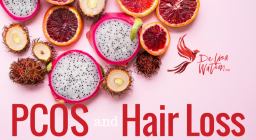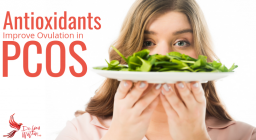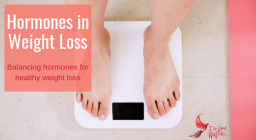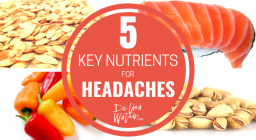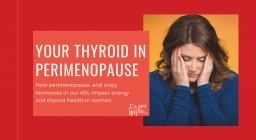
My journey towards becoming a Naturopathic Doctor had a lot to do with my gut. Not just a gut feeling that this profession was my calling, but a sick feeling in my gut that caused me to vomit every day for over a year.
I was a 17 year old, living in Kingston – a new city far from home, and coping with typical teen stress and angst. But on top of it all, I was losing my hair and I was so digestively unwell that I was vomiting every day. Every day. I knew that was not normal.
Some of you know how this story goes. I saw medical doctors, they ran pregnancy tests and told me I likely had an eating disorder – because I was a vegetarian. Seriously. That was it. If I wasn’t pregnant, I was somehow making myself vomit every day, even though it most certainly wasn’t voluntary. I have never felt so unheard, or so quickly dismissed in my life.
I was lucky enough to have a grandmother who was obsessed with natural healing, who turned me on to the idea that maybe, just maybe, there was another approach to understanding what was happening in my gut.
I am so glad I had her. I discovered naturopathic medicine, healed my gut (it was 100% stress related), regrew my hair (it’s GD glorious now), and found a career where I could serve others and change lives. Thanks Grandma – you changed my life in so many ways. I miss you every day.
The Hormones of Digestion
If you’ve been following me for some time you’ll know my deepest expertise is hormones. (If you’re brand new – welcome! Stick around, we have fun here.) I have spent over a decade building a depth of knowledge on how hormones impact the health of women. While many people think of periods, menopause, and PMS when they think of hormones, hormones actually control just about everything in your body – including digestion.
There are five main hormones that control digestion.
- Gastrin, a hormone that stimulates your stomach to make the all-important stomach acid.
- Secretin, a hormone produced by the small intestines that stimulates the liver and pancreas to produce digestive enzymes
- Cholecytokinin, slows down our digestive movement so that we can more completely digest our food
- Gastric inhibitory peptide, which inhibits gastrin production and stimulates insulin so that we can start to use some of the nutrients we have digested
- Motilin, a hormone that causes our bellies to rumble when they are empty and remind us that we are hungry. (Fun fact – this noise is called borborygmus – an excellent example of an onomatopoeia.)
But I don’t think this is what we really want to talk about when we talk about how hormones influence digestion.
Hormones and… Digestion
A woman’s hormones 100% impact her digestion. We know that gender plays a role in many digestive conditions – women are twice as likely to have IBS as men. And women on the birth control pill are more likely to develop inflammatory bowel disease, especially Crohn’s disease[1]. Women often have worse digestive symptoms at different times in the menstrual cycle, and even women with healthy digestion are often subject to the “period poops” – loose or urgent bowel movements on the first day or two of their period.
The main menstrual hormone that impacts our digestion is progesterone. Progesterone is produced after ovulation, for the last two weeks of our cycle. One of the main effects of progesterone is to relax smooth muscle tissue. This is hella important to prevent our uterus from contracting and rejecting any potential pregnancy. However, this relaxing effect doesn’t just stay in our uterus. It also causes our digestive smooth muscle to relax, reducing peristalsis (the contraction that moves food along our digestive tract), causing an increase in constipation. When the progesterone disappears with our period, that is when the dreaded period poops arrive[2].
Another hormonal issue impacting digestion also occurs during our periods. During our period we make an abundance of a compound that has hormone-like effects, called a prostaglandin. Prostaglandins are responsible for pain and inflammation, and are unfortunately necessary to signal our uterine wall to contract and expel the lining during our period. Some women make more prostaglandins than others (you can read about this in my article on Pain Free Periods) and these prostaglandins can move through the bloodstream, hitting the bowels and causing them to contract and cause pain, inflammation, cramping, and diarrhea. Sigh. Because that is what a woman needs during her period.
Stress and Digestion
Let’s not forget the hormonal imbalance that started my story – stress. While we may not think of stress as a hormone imbalance, it is one of the most common ones impacting both men and women (and children and teens.) Stress is managed in our body through a balance of hormones, most notably cortisol. During stress, when our body is producing high levels of cortisol to help us cope, our body shuts down digestion, shunting our resources towards survival – blood rushes to our brain, our eyes, and our muscles to help us escape or fight back.
When our stress system shuts down our digestive tract the results can be unpredictable. Some people experience what I like to think of as “🚨 the emergency evacuation system 🚨 ” where any food in the digestive tract is expelled via diarrhea or, in my case, vomiting. Other people experience constipation during stress when the digestive system just ceases all activity, leading to infrequent bowel movements, gas and bloating.
In either case, reducing the stressor, and calming the stress response can improve digestion. However, with so many of us in a perpetual state of stress, this can have major impacts on digestion.
Help for Hormones, and Digestion
Digestion is a topic we naturopathic doctors are passionate about. Digestion is paramount to health – if you can’t get nutrients from your food we are pretty much shot at being able to achieve abundant health. Our digestive tract also produces most of our feel-good neurotransmitters, controls inflammation, and regulates our immune system. It’s pretty damn important. If you are experiencing digestive issues, speak to a Naturopathic Doctor. Naturopathic Medicine changed my life, in oh-so-many way, and it can change yours too.
Select resources
[1] Cornish JA et al. The risk of oral contraceptives in the etiology of inflammatory bowel disease: a meta-analysis. Am J Gastroenterol. 2008;103(9):2394-400
[2] Houghton LA et al. The menstrual cycle affects rectal sensitivity in patients with irritable bowel syndrome but not healthy volunteers. Gut. 2002;50(4):471-4.
Disclaimer
The advice provided in this article is for informational purposes only. It is meant to augment and not replace consultation with a licensed health care provider. Consultation with a Naturopathic Doctor or other primary care provider is recommended for anyone suffering from a health problem.






